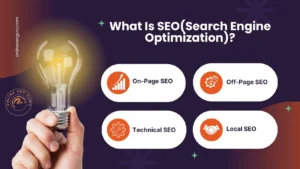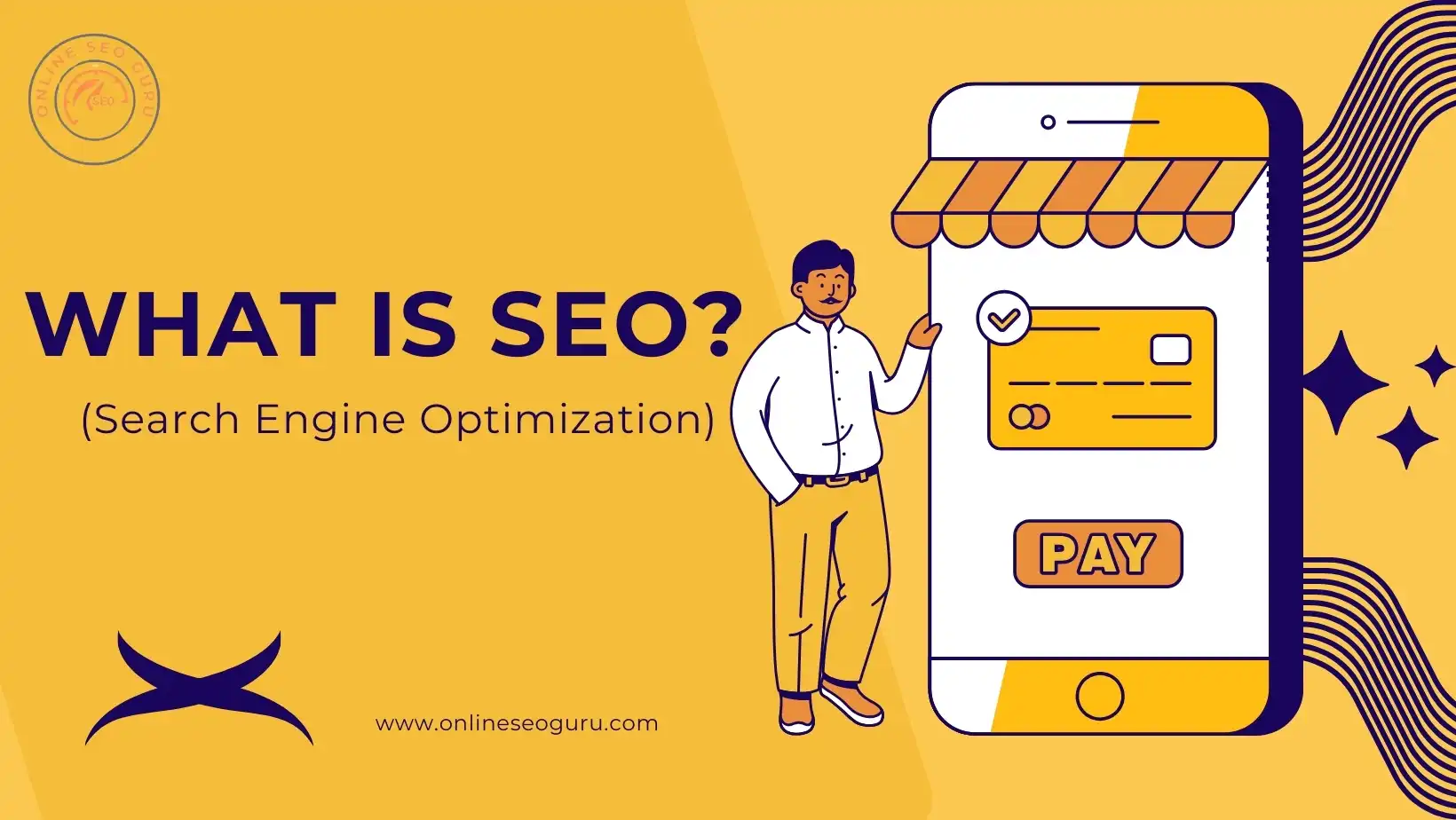Imagine you’re a bookshop owner in a busy city, tucked away in a cozy alley. Your store is filled with amazing books, from old favorites to new hits. But there’s a problem not many people find their way to your shop because it’s hidden away from the main streets. This is where Search Engine Optimization (SEO) comes in.
In the huge online world, where there are billions of websites all fighting for attention, SEO is like a guiding light. It helps bring people to your online shop by making it easier for them to find you when they search for things online. But what exactly is SEO, and why is it so important for your success online?
What Is SEO (Search Engine Optimization)?
SEO is the strategic process of optimizing your website to improve its visibility in search engine results pages (SERPs). Essentially, it’s about enhancing your website’s relevance and authority in the eyes of search engines like Google, Bing, and Yahoo, thereby driving organic (non-paid) traffic to your site.
Now, let’s delve deeper into the labyrinth of SEO, uncovering insights often overlooked in the typical SEO discourse.
How SEO Differs from SEM and PPC?
Before delving into SEO intricacies, it’s crucial to differentiate between SEO, Search Engine Marketing (SEM), and Pay-Per-Click (PPC) advertising.
SEO focuses on organic search results, optimizing your website to rank higher in unpaid search engine listings. It’s a long-term strategy that requires continuous effort but yields sustainable results.
On the other hand, SEM encompasses paid search activities, including PPC advertising. While SEO is about earning visibility, SEM involves buying it through ads displayed on search engine results pages. PPC, a subset of SEM, allows advertisers to bid for ad placement and pay a fee each time their ad is clicked.
Why SEO Is Important?
The digital realm is a crowded marketplace, with millions of websites vying for attention. In such a landscape, visibility is paramount, and SEO is your ticket to standing out amidst the digital din.
Consider this: 75% of users never scroll past the first page of search results, highlighting the importance of securing a coveted position atop SERPs. Moreover, a staggering 53.3% of all website traffic comes from organic search, underscoring the pivotal role of SEO in driving web traffic.
However, SEO isn’t merely about attracting eyeballs; it’s about attracting the right ones – users actively seeking the products, services, or information you offer. By optimizing your website for relevant keywords and providing valuable content, you not only boost visibility but also attract qualified leads, ultimately translating into increased conversions and revenue.

SEO Types & Specializations
SEO isn’t a one-size-fits-all solution; rather, it encompasses various types and specializations tailored to different aspects of digital optimization.
On-Page SEO
This involves optimizing individual web pages to rank higher and earn more relevant traffic. It includes optimizing content, meta tags, headings, and URLs, among other elements, to enhance the page’s relevance and crawlability.
Off-Page SEO
Unlike on-page SEO, off-page SEO focuses on external factors that influence your website’s rankings. This includes building high-quality backlinks, social media engagement, and online reputation management to bolster your site’s authority and credibility.
Technical SEO
Technical SEO deals with the backend aspects of website optimization, ensuring that search engine crawlers can index and understand your site’s content efficiently. It involves optimizing site speed, mobile-friendliness, site architecture, and other technical elements to enhance user experience and search engine visibility.
Local SEO
If you operate a brick-and-mortar business or serve a specific geographic area, local SEO is paramount. It involves optimizing your website and online presence to appear in local search results, driving foot traffic and conversions from nearby customers.
How SEO Works?
At its core, SEO revolves around the complex algorithms employed by search engines to rank web pages based on relevance and authority. While search engine algorithms are closely guarded secrets, certain key factors influence rankings:
Content Relevance
High-quality, relevant content that satisfies user intent is paramount for SEO success. Creating informative, engaging content that addresses user queries and provides value is key to ranking well in search results.
Backlink Profile
Backlinks, or inbound links from other websites, serve as a vote of confidence in your site’s authority and credibility. Building a diverse, high-quality backlink profile is crucial for improving search engine rankings.
Website Architecture
A well-structured website with intuitive navigation and clear hierarchy enhances user experience and makes it easier for search engine crawlers to index your content effectively.
User Experience
Search engines prioritize websites that provide a seamless, user-friendly experience. Factors such as page load speed, mobile-friendliness, and low bounce rates contribute to improved rankings.
How to Learn SEO?
Embarking on your SEO journey can seem daunting, but fear not – numerous resources and courses are available to help you navigate the intricacies of SEO.
- Online Courses: Platforms like Coursera, Udemy, and LinkedIn Learning offer comprehensive SEO courses catering to all skill levels, from beginners to advanced practitioners.
- Blogs and Forums: Stay updated with the latest SEO trends and techniques by following industry-leading blogs such as Moz, Search Engine Journal, and Neil Patel’s blog. Engage with SEO communities on platforms like Reddit and Stack Overflow to seek advice and share insights with fellow enthusiasts.
- YouTube Tutorials: Video tutorials on YouTube provide visual demonstrations of SEO concepts and techniques, making it easier to grasp complex concepts.
- Practical Experience: The best way to learn SEO is by doing. Start by optimizing your website or volunteering to assist friends or local businesses with their SEO efforts. Hands-on experience will deepen your understanding and proficiency in SEO practices.
SEO is a multifaceted discipline that demands continuous learning and adaptation in response to evolving search engine algorithms and user behaviours. By mastering the art of SEO, you can elevate your online presence, drive targeted traffic to your website, and achieve your digital objectives amidst the ever-changing digital landscape.
So, gear up, fellow digital adventurers, as we embark on an exhilarating journey through the labyrinthine world of SEO, where every click, every keyword, and every algorithm tweak shapes our digital destiny.







